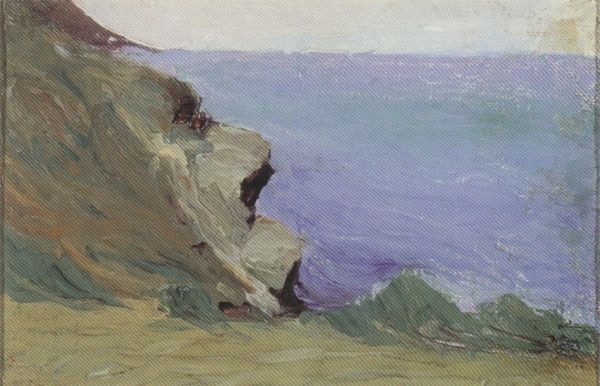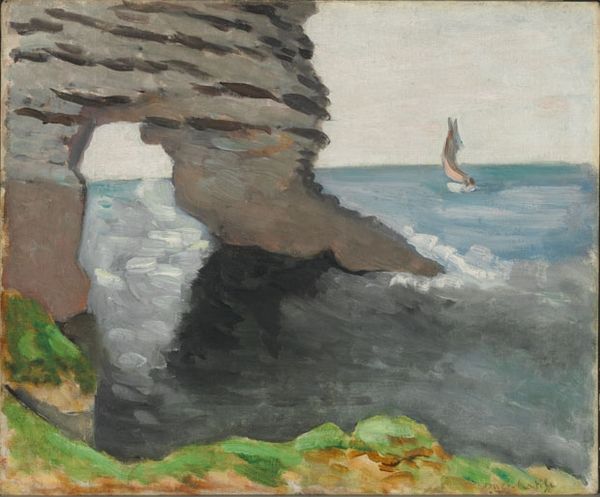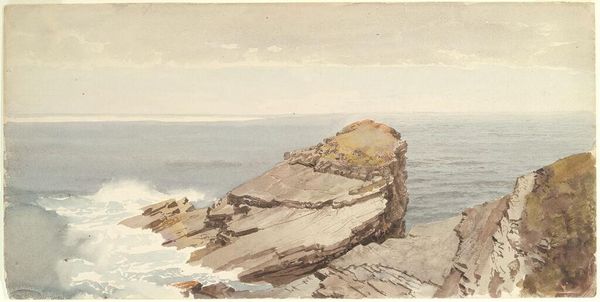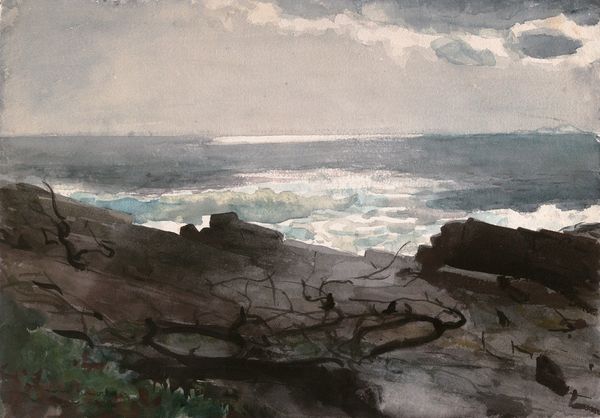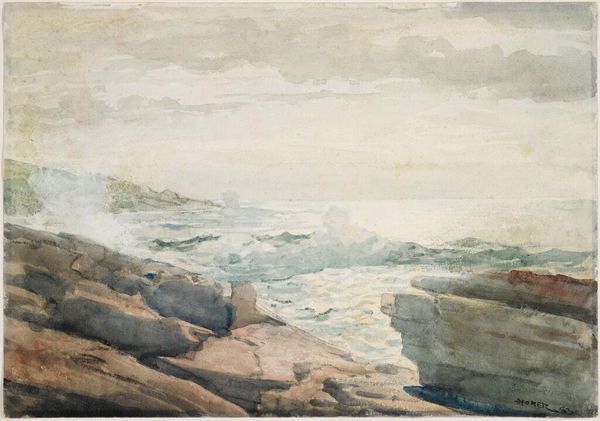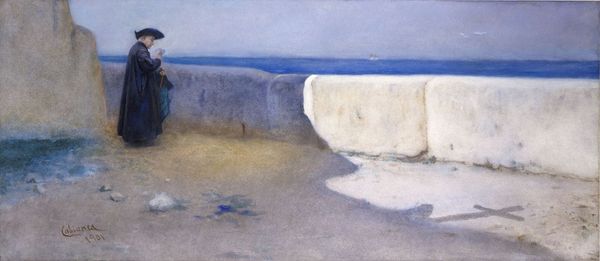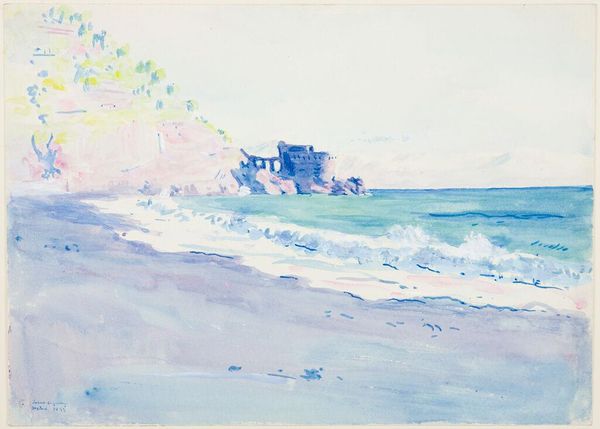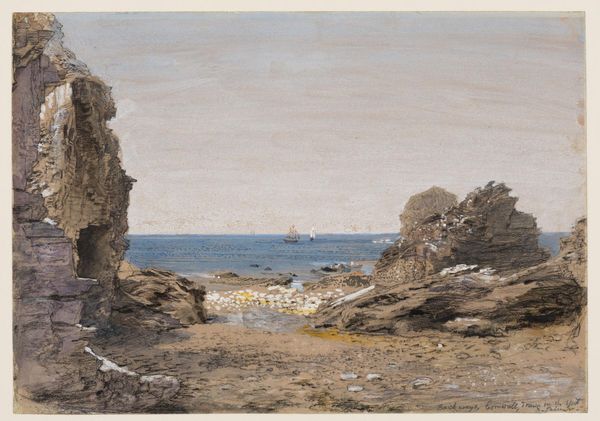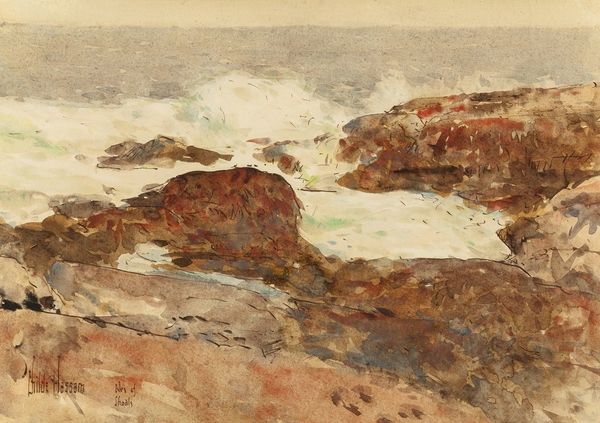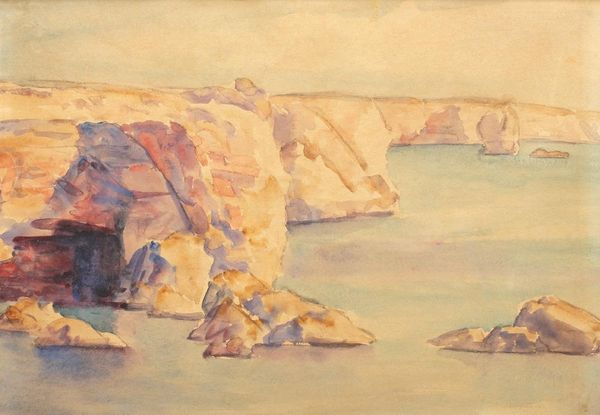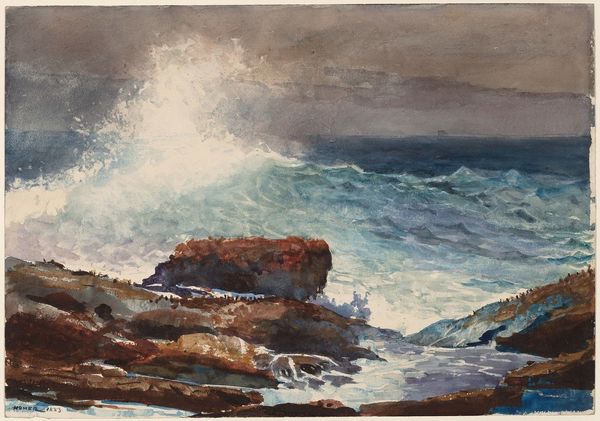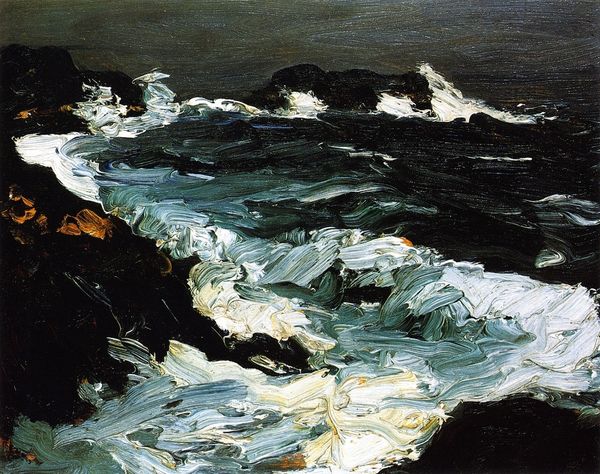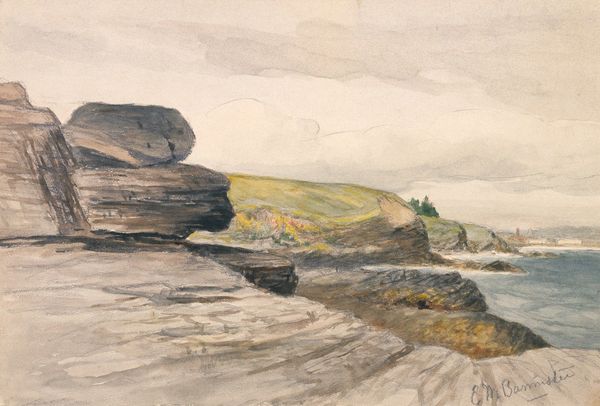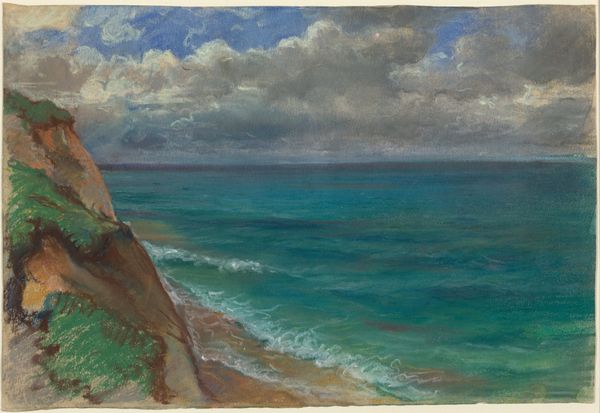
painting, plein-air, watercolor
painting
plein-air
landscape
oil painting
watercolor
watercolor
realism
Copyright: Public Domain: Artvee
Curator: Winslow Homer’s "Rocky Shore, Bermuda," created around 1900. What strikes you immediately? Editor: The austerity, honestly. The gray sky, the turbulent water...it's beautiful, but with a melancholic edge. A very different vibe from what one might expect of a tropical locale. Curator: It’s interesting that you pick up on that melancholy. Consider Homer’s broader artistic output—his fascination with the power of nature, particularly the sea. How might we see this in relation to prevailing ideologies of masculinity and man versus nature at the turn of the century? Editor: Yes, this perspective highlights a sense of struggle, where man is not necessarily dominant but subject to the immense and unforgiving elements. The scale feels relevant here: the rocky formations dwarf any potential human presence, a theme that speaks to colonial endeavors and inherent dangers. The painting's quiet drama reflects the power dynamics at play in these landscapes. Curator: And looking closer at Homer's use of watercolor—how does that inform the emotional weight of the image? The fluidity, the blending of tones... Editor: The transparency gives the scene an ethereal quality. The subtle washes of blue and grey seem to mimic the constant ebb and flow, a world in perpetual flux, just as societies change. Curator: I agree, the technique perfectly captures that sense of transience and emphasizes our tenuous relationship with these spaces. A connection worth exploring further as we consider climate change and its impact on vulnerable coastal communities. Editor: Absolutely. This artwork prompts necessary dialogues about place, identity, and environmental justice. It makes me wonder about the legacy we leave behind, and which interpretations might shape futures we cannot even imagine. Curator: Thank you; it's invaluable to revisit artworks, looking for relevant voices in critical dialogues that evolve through the ages.
Comments
No comments
Be the first to comment and join the conversation on the ultimate creative platform.
